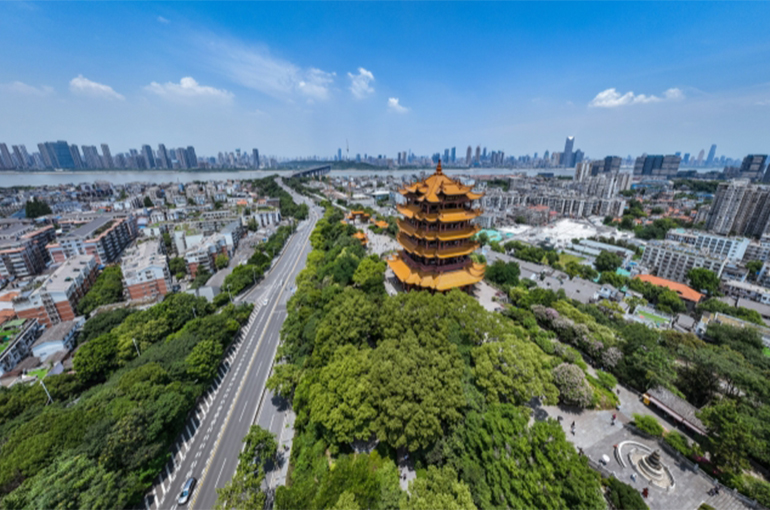 Wuhan, Hangzhou Join China’s CNY2 Trillion GDP Club
Wuhan, Hangzhou Join China’s CNY2 Trillion GDP Club(Yicai) Jan. 30 -- Wuhan in central Hubei province and Hangzhou in eastern Zhejiang province have become the latest Chinese cities to log annual gross domestic product of over CNY2 trillion (USD282 billion), bringing the number of such municipalities to nine.
The size of Wuhan’s economy climbed 5.7 percent in 2023 year on year to just over CNY2 trillion, based on preliminary estimates of constant-price GDP, which is calculated using the current exchange rate, that were released by the Municipal Bureau of Statistics on Jan. 28.
While Hangzhou’s constant-price GDP advanced 5.6 percent over the period to top CNY2 trillion, the metropolis said on Jan. 24.
The two cities join Shanghai, Beijing, Shenzhen, Chongqing, Guangzhou, Suzhou and Chengdu in the CNY2 trillion GDP club.
The biggest driving force for Wuhan’s GDP is technological innovation, Chen Qiang, professor at Tongji University’s School of Economics and Management, told Yicai.
Wuhan, which is the only one of the nine metropolises that is located in central China, is home to 92 colleges and 101 research institutes. As such it possesses great strengths in education in the sciences and a large talent pool.
The number of small and medium-sized tech firms in the city soared 44.9 percent last year from the year before to 12,582, while the number of high-tech companies jumped 16 percent to 14,500, Chen said.
The output value of Wuhan's five biggest industries, namely optoelectronic information, new energy and intelligent connected vehicles, life and health sciences, high-end equipment and Beidou navigation, are expected to exceed CNY1.6 trillion last year, taking up more than 55 percent of the output value of industries above a designated size.
While the driving forces of Hangzhou’s economy are the digital and platform sectors. The value added of industries in the digital economy is expected to have surged 8.5 percent last year from 2022 to a record CNY567.5 billion (USD80 billion), accounting for 28.3 percent of the city’s GDP, according to the Hangzhou Municipal Bureau of Economy and Informatization.
The city’s revenue from information transmission, software and information technology services advanced 8.9 percent over the period thanks to tech giants Alibaba Group Holdings and NetEase. Hangzhou’s sales of industrial robots more than doubled last year from the year before, surging by 118.6 percent, while that of solar cells jumped 147.2 percent
Editor: Kim Taylor